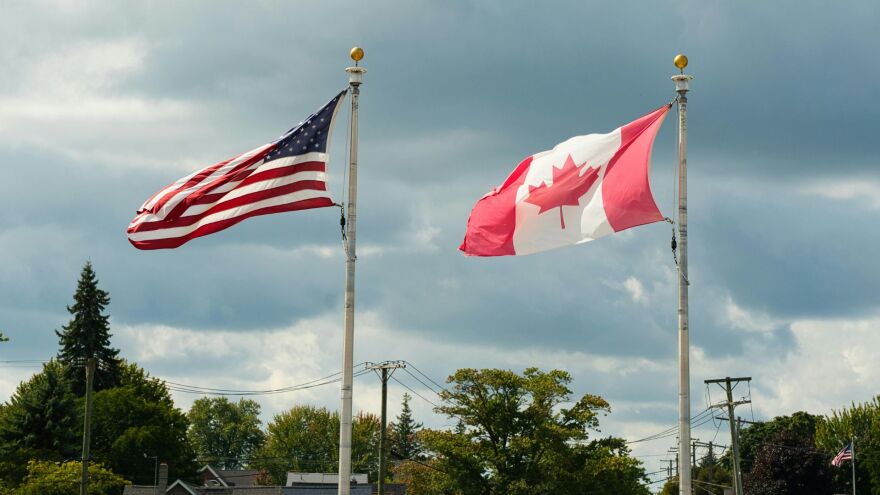Four months into President Donald Trump’s Canadian tariffs, U.S. travel along the nations’ shared border has dropped by nearly 11 percent. In Central New York, Senator Chuck Schumer recently reported that figure is doubled.
Last fall, when Rachel MacDonald heard the legendary thrash metal rock band Metallica was touring for the first time in 16 years, and that the closest tour stop to her would be in Syracuse, New York in April, she jumped at the chance to buy tickets.
That was in September of 2024, nearly six weeks before U.S. voters elected Donald Trump to his second term as U.S. President.
Six months later, after Trump imposed a 25% tariff on Canadian goods and entertained the idea of folding the northern nation into the U.S., MacDonald’s excitement had turned to dread.
As a native of Halifax, Nova Scotia, she would either need to fly more than 600 miles or drive nearly 1,000 to get to the show. Just weeks before the mid-April concert, she had a change of heart.
“Just in the last, you know, month and a half, two months. We really just started thinking like, no, I just don't feel good about crossing the border right now,” she decided after rethinking her priorities, “I'd rather spend my money here in Canada.”
At the same time, the President and CEO of Visit Syracuse was looking at the numbers Central New York stood to lose if visitors like MacDonald felt the same insecurity.
“Last year, visitors spent around $1.3 billion,” Danny Liedka calculated, and “Canadians are a very large portion of that spending.”
Conservatively, he estimated Canadians contribute to Central New York’s market, “probably about $130 million a year. So that’s a big concern when it’s 10% or 15% of the total market.”
He said it has forced the local hospitality industry to shift gears and focus on neighboring domestic markets like Boston, New York City, and Philadelphia.
It is “to the point now where we've pulled back all of our marketing efforts in Canada just because it's received very negatively,” and he had noticed the Canadian website visits were “down almost 50%.”
At the same time, Jessica VanDeMar had noticed the Canadian chill moving in over what is normally the hottest tourist region in Central New York. She heads the Finger Lakes Visitors Connection.
“There have been some people that have reached out as far as canceling their vacations,” she reported. They, too, have shifted strategies, “We still will continue our marketing efforts across you know, our drive markets,” with the hope, she said, that it’s enough to hang tough.
Looking at visitor statistics from the month of March, just weeks after the tariffs began, approximately 900,000 fewer people reportedly crossed over the Canadian border into the U.S. compared to this time last year.
There is no clock or precedent to help strategists predict when Canadians will feel compelled to return to Central New York. At this point, many Canadians have said they will consider it after there is a new U.S. President.


